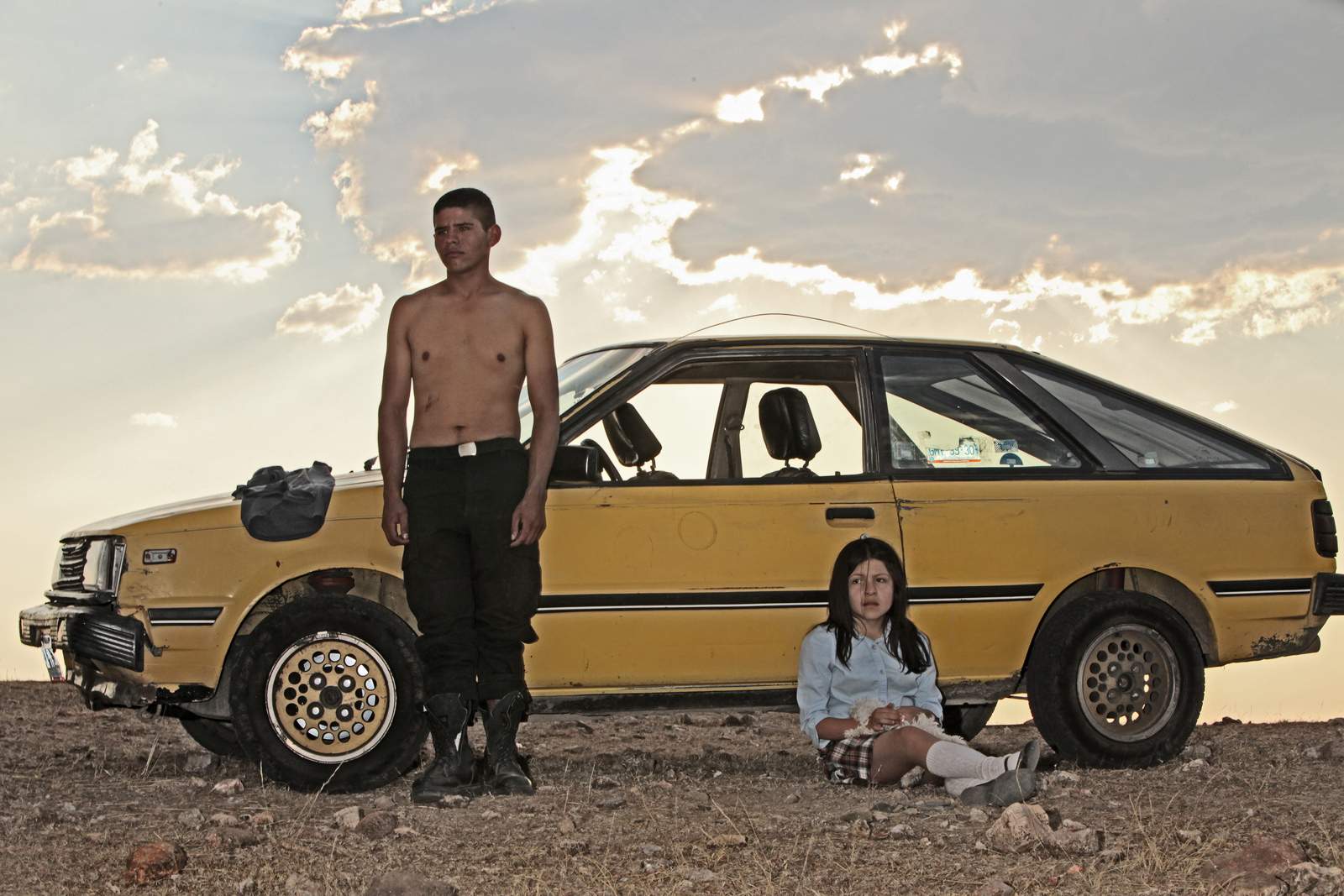Mexican drug cartels have become Hollywood shorthand for evil—like Indians in the old days, or Nazis after that. On this side of the border, screenwriters love the irony: Our naive drug habits fuel the violence that inexorably reaches us; then we act like innocent victims. (See Traffic, No Country for Old Men, Savages, and The Counselor.) But on the other side of the Rio Grande, what’s the Mexican perspective? Director Amat Escalante takes an entirely naturalistic approach to violent narco-trafficking. It just is, an implacable force like the weather or inflation, beyond man’s control or comprehension.
Heli (Armando Espitia) is a factory worker, maybe 20, living with his wife, infant daughter, father, and 12-year-old sister Estela (Andrea Vergara) in a humble home. Re-bar sprouts from the roof, like optimistic grass shoots, with the expectation of a second story to be added. Heli’s wife tends the baby (though with some resentments). Estela is a uniformed schoolgirl. This is a stable household, visited and indexed by a census worker in an early scene, to help us appreciate the sheer normalcy of the Salvo family.
Then Estela succumbs to the charms of muscular 17-year-old police cadet Beto (Juan Eduardo Palacios), who correctly judges himself a cog in a corrupt system. An American military advisor humiliates him during training. He helps toss kilo after kilo of drugs into a bonfire at a Potemkin press conference, but is anyone actually counting those bundles? For a fresh start, he tells Estela, they could move far away; all it would take is a little nest egg. Who would notice if one of those bundles went missing?
Clearly, like Josh Brolin taking the suitcase full of cash in No Country for Old Men, this is a very bad idea. The terrible consequences of that theft from thieves are depicted unsparingly by Escalante, though with a wide-screen aesthetic distance. (He’s a protege of Silent Light director Carlos Reygadas, whose films have previously played NWFF.) There is torture here, and the sex has a primal, animalistic quality. Heli is essentially about survival—against the overwhelming narco-state apparatus—and small measures of revenge. Some images are shocking, yet there’s an overall mood of matter-of-fact Bressonian indifference. Unlike his American counterparts, Escalante doesn’t sensationalize such violence, but maybe normalizing it is worse. Runs Fri., Aug. 22–Sun., Aug. 24 at Northwest Film Forum. Not rated. 105 minutes.
bmiller@seattleweekly.com









